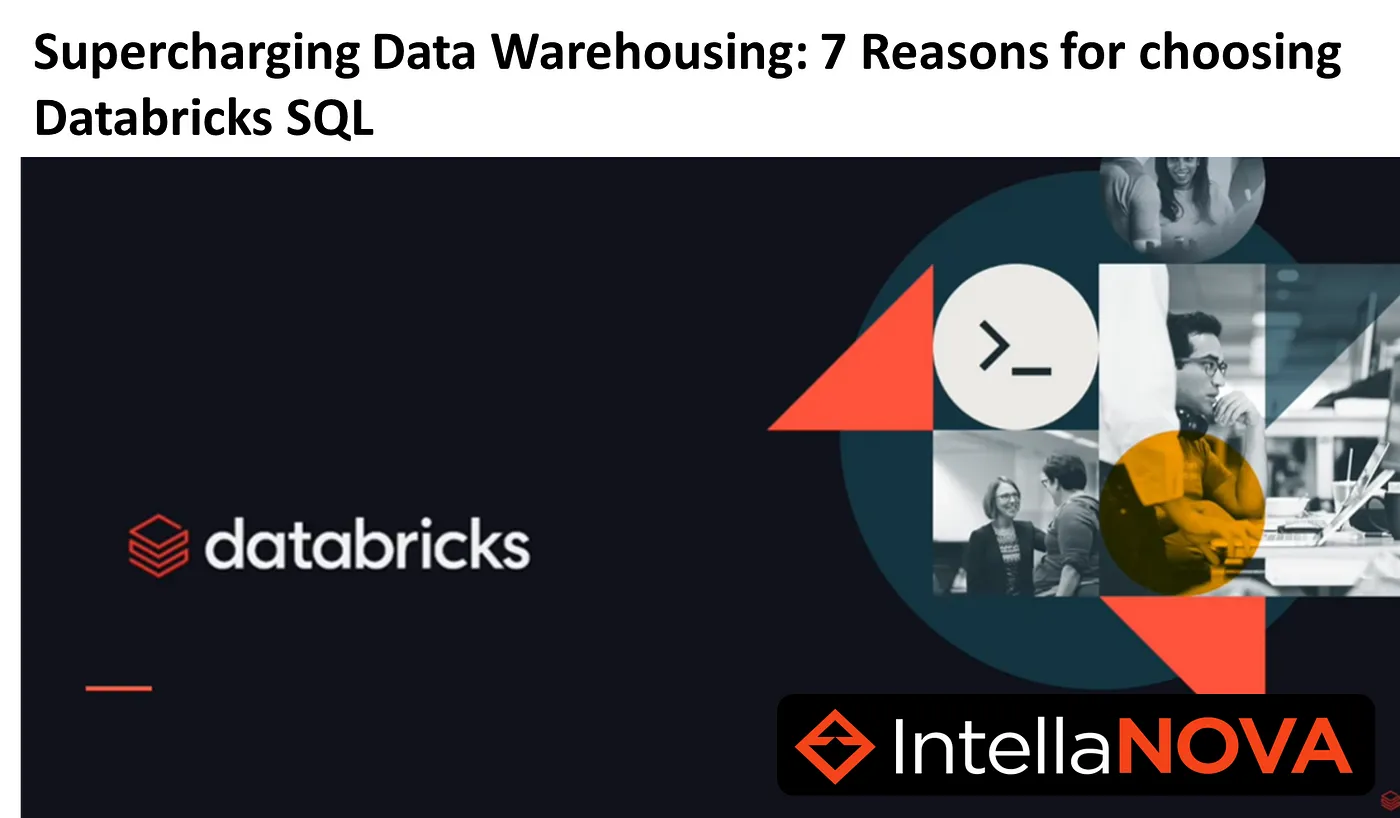
Supercharging Data Warehousing: 7 Reasons for choosing Databricks SQL
Databricks has focused on three key areas to optimize data warehousing on the Lakehouse: core functionality, out-of-the-box performance, and user-friendliness.
- Core Data Warehousing Functionality
Databricks SQL now supports essential data warehousing capabilities like full ANSI SQL, materialized views, and row-based access control, which weren’t initially available. This functionality has attracted a broad ecosystem of data and AI partners, making it easier for businesses to adopt Databricks SQL with tools you are already familiar with, such as Tableau, Power BI, ThoughtSpot, Looker, Sigma, and Qlik.
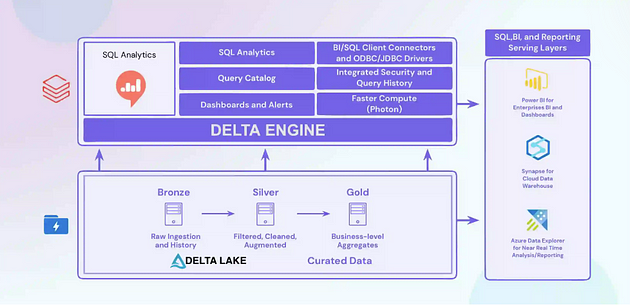
2. Out-of-the-Box Performance and Cost Efficiency
Performance and pricing are critical in evaluating any data warehousing solutions. We all understand that data warehouses are among the most significant expenditures in enterprise IT. Databricks SQL has proven especially economical as data volumes increase. In benchmarks comparing Databricks SQL with leading cloud data warehouses, Databricks SQL scaled more linearly in terms of cost. In contrast, traditional data warehouses tended to scale exponentially. This price-performance efficiency makes Databricks SQL a strong choice for companies with massive and growing datasets. It provides you with predictable costs without sacrificing quality.
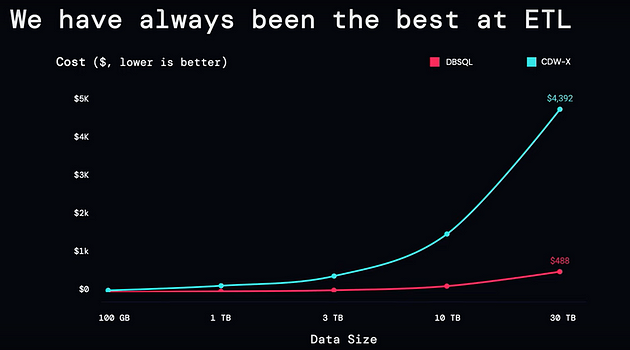
3. Enhanced Platform Experience for Business Analysts
Historically, Databricks was primarily seen as a tool for technical teams, such as data scientists and engineers. However, Databricks has made extensive improvements to the platform over the last few years, and have made it accessible to business analysts and other users who rely on SQL-based tools. Databricks SQL’s rapid compute acquisition, robust ecosystem, and lower migration costs have made it an attractive solution for business intelligence and analytics workflows.
Databricks SQL (DB SQL) brings enhanced user experience, enables powerful AI integration, and provides cost-effective data warehousing capabilities.
Here are the 7 reasons to choose Databricks SQL.
1. User Experience Revamp: Databricks SQL has been redesigned to cater not only to data scientists and engineers but also to analysts. The platform has moved beyond SQL queries, adding a visual interface for exploring data lineage, making it more accessible.
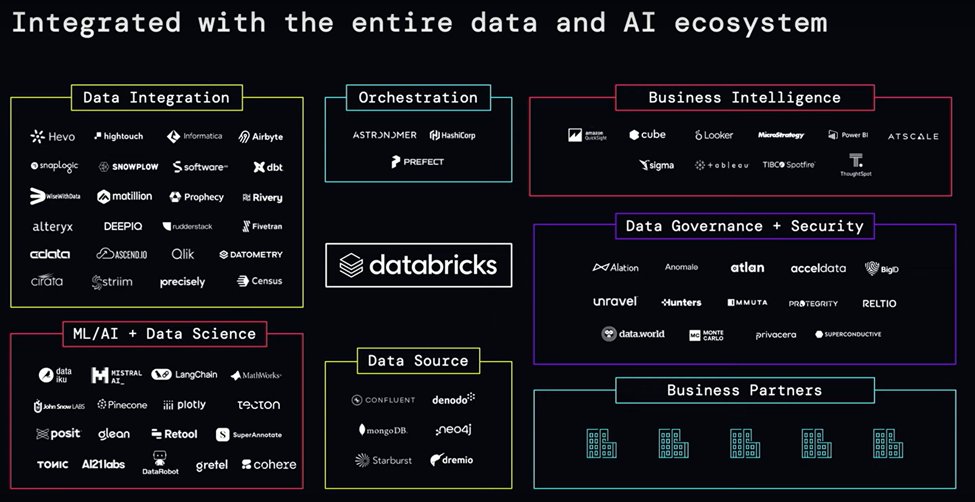
2. Enhanced Error Handling: For users less familiar with technical jargon, Databricks now provides simpler error messages, AI-driven recommendations, and automatic error fixes, making troubleshooting more manageable for business users.
3. Advanced SQL Features: Databricks SQL now includes unique features like SQL User-Defined Functions (UDFs), session variables, and lateral column usage, adding flexibility and performance improvements.
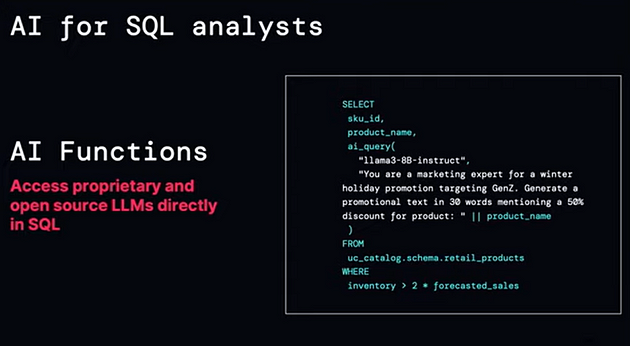
4. AI-Driven Insights: The platform has expanded its AI capabilities with Databricks Assistant and AI functions, allowing analysts to perform complex tasks like forecasting and sentiment analysis without needing extensive coding. Additionally, AI models can be created by engineers and made available across the organization through Unity Catalog.
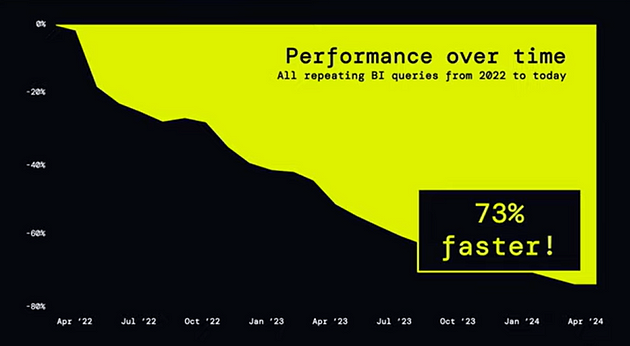
5. Integration with BI Tools: Integration with popular BI tools like Power BI and Tableau enables seamless reporting. This integration, facilitated through materialized views and secure connections, allows for faster query performance and easy sharing of insights.
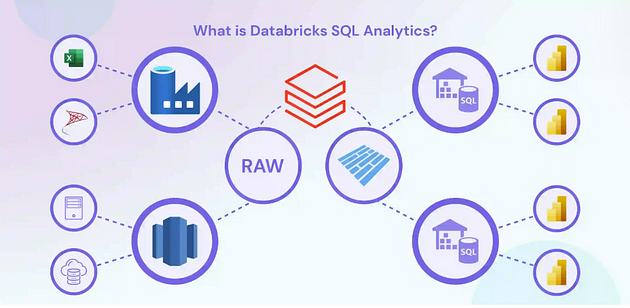
6. Vector Search and Embeddings: The newly added Vector Search feature enables semantic searches, retrieving related data even if there isn’t an exact match, enhancing search flexibility across datasets.
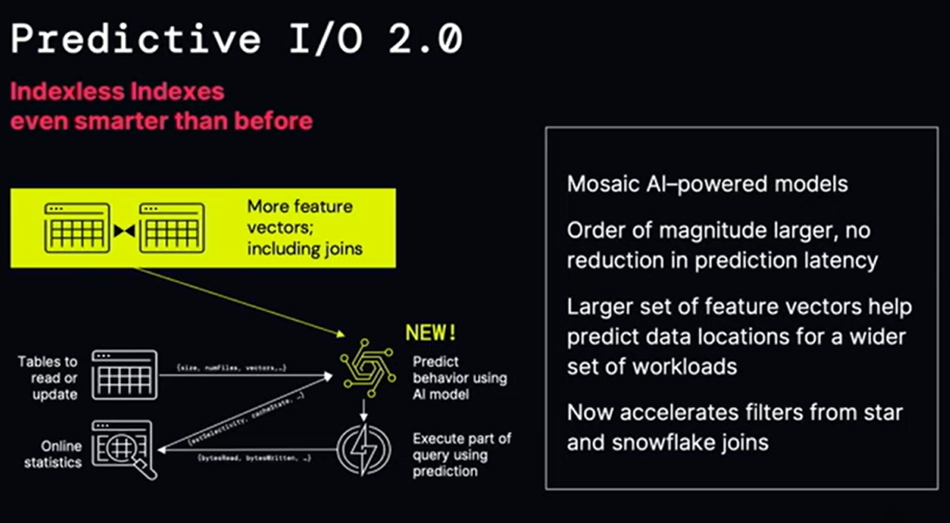
7. Sentiment Analysis and Other AI Functions: Features like sentiment analysis can quickly evaluate customer feedback, helping businesses make data-driven decisions based on sentiment trends.
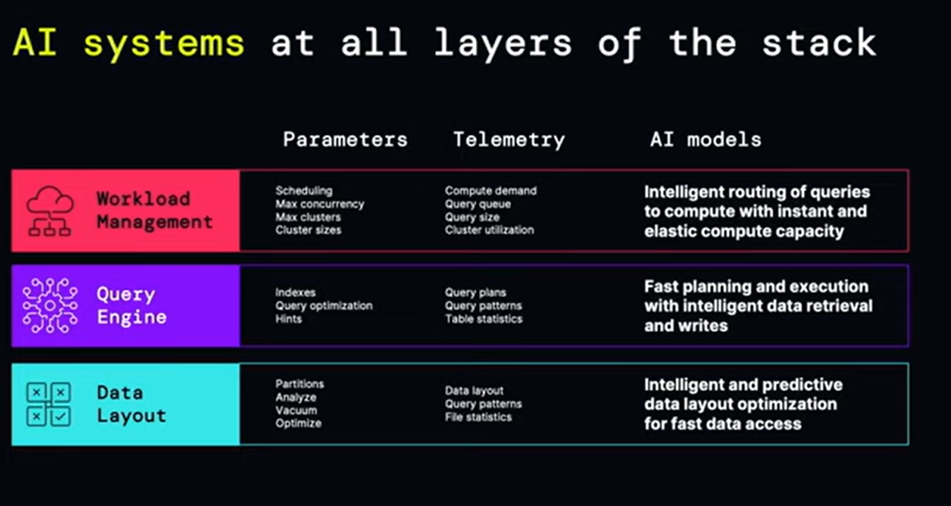
Conclusion
As the future of data warehousing continues to unfold, Databricks SQL and the Lakehouse architecture are positioned to play a central role. By merging the strengths of data lakes and warehouses, Databricks SQL offers a compelling, scalable, and high-performance solution to meet the growing demands of enterprise data workloads. With continued investments in AI-driven performance improvements and expanded capabilities for business users, Databricks SQL is shaping the future of data warehousing.
The overall emphasis is on Databricks SQL’s evolution as a flexible, accessible, and AI-powered data warehousing solution that merges the strengths of a data lakehouse with traditional data warehousing capabilities, enabling cost-effective, scalable data management for a wider range of users.



